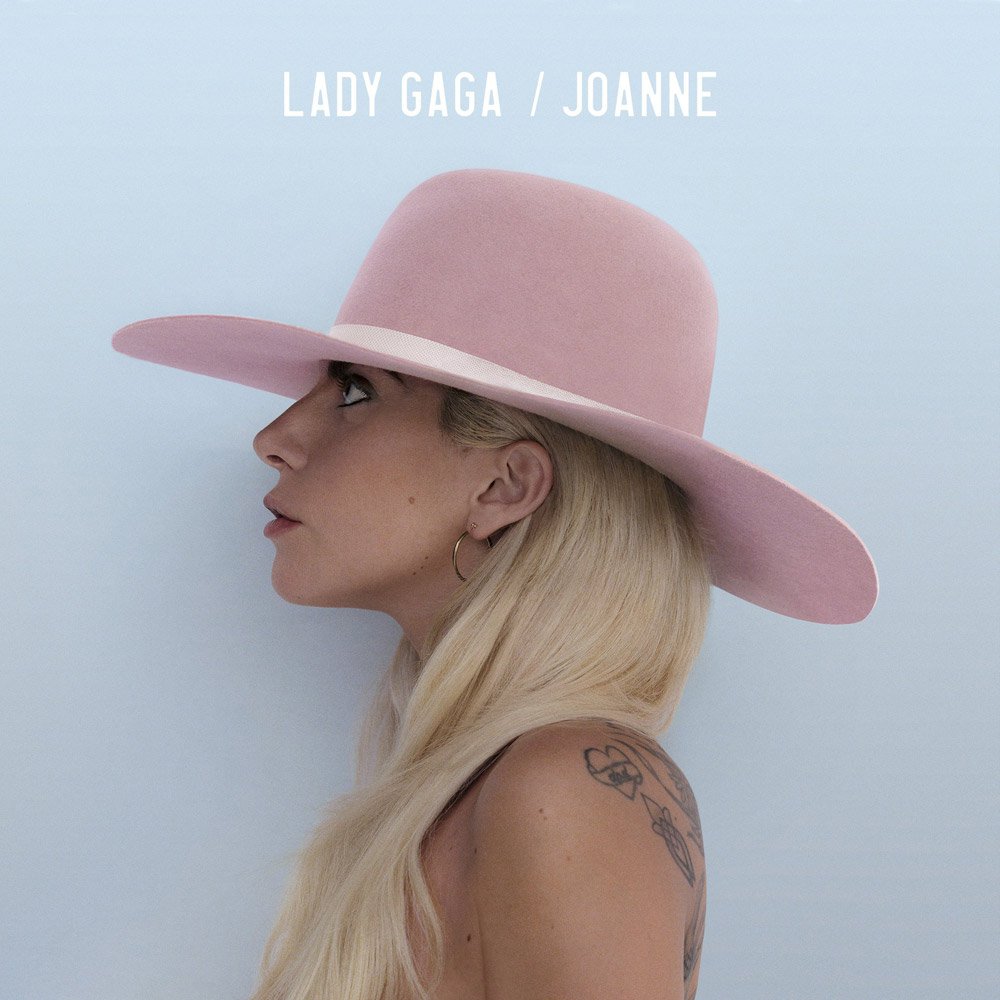
Since the release of her third studio album, “Artpop,” in 2013, Lady Gaga has gotten the memo that she is old news. Critics and audiences panned the album for being pretentious and out-of-touch.
After delivering acclaimed live performances at award shows in the period since, she has slowly reacquainted the general public with the Lady Gaga that’s not just about gimmicks. Soon enough she was once again revered for standing out as a huge industry name with actual talent to back it up. People were yearning for a vulnerable side of her, and she shows it in her newest studio effort, “Joanne,” released on Oct. 21.
“I might not be flawless, but you know / I’ve got a diamond heart,” belts Lady Gaga on her album’s intro track. “Diamond Heart” begins with a simple guitar riff until it elevates into an Americana rock anthem, setting the stage for the rest of “Joanne” to revamp Lady Gaga into a chic country rock star.
From there, her up-tempo sound highlights the album. “A-YO” sounds like Lady Gaga channeling her inner Taylor Swift to create a catchy and confident dance-pop anthem. “John Wayne” is theatrical and seductive, while “Dancin’ in Circles” is the type of foot-tapping track fans have learned to expect from Lady Gaga.
Yet, in the middle of the album where “Perfect Illusion” and “Million Reasons” reside, Lady Gaga’s electric persona temporarily fizzles. These two songs were released as singles to promote “Joanne,” and yet are arguably the album’s weakest cuts.
While “Perfect Illusion” works in its own right, it doesn’t fit with any other song on the album. In that same vein, “Million Reasons” seems to be more of a basic appeal to a mainstream audience rather than a soulful ballad. While the track is full of soul, the repetitive and emotionless lyrics in the track make it feel like a cop-out.
Lady Gaga commands attention with the title track ballad “Joanne” dedicated to her aunt who died at the age of 19. “If you could / I know that you’d stay / We both know / Things don’t work that way,” she softly sings. Though she never met the aunt she sings about, her voice and lyrics capture the unmistakable sadness of accepting something so final as a familial death.
She takes listeners on a western journey with “Sinner’s Prayer.” This track paints a picture of Lady Gaga in a romance where she plays the antagonistic partner of a cowboy while proclaiming her love for him. With lyrics like “I am what I am / And I don’t wanna break the heart of any other man / But you, but you,” “Sinner’s Prayer” is the highlight of the album, chock full of attitude and Lady Gaga’s cowboy fantasies.
If she had incorporated this confident and dramatic western flair to duds like “Perfect Illusion,” she would have been able to better challenge the naysayers that have already began to trash her revival.
Lady Gaga fends for herself though, ending “Joanne” with impressive collaborations and political statements. “Hey Girl” with Florence Welch is a masterpiece of an ode to 1980s synth-pop. Lady Gaga’s strong vocals are equally matched with Welch’s smooth voice as they sing about female solidarity. “Angel Down” is Lady Gaga’s social commentary on Trayvon Martin and the Black Lives Matter movement, showing her support in the form of a sentimental ballad.
While at first “Joanne” seems to be just a radical proclamation of change, it’s clear that Lady Gaga has poured her soul into this glamorous sound. She is focused on reinventing herself with what audiences expect of her now that they know her true talents. This commitment to, and confidence in, her theatrical statements will always be followed by some form of hate from listeners. Yet, she is focused on winning over people’s hearts, and is doing so by following her own.


